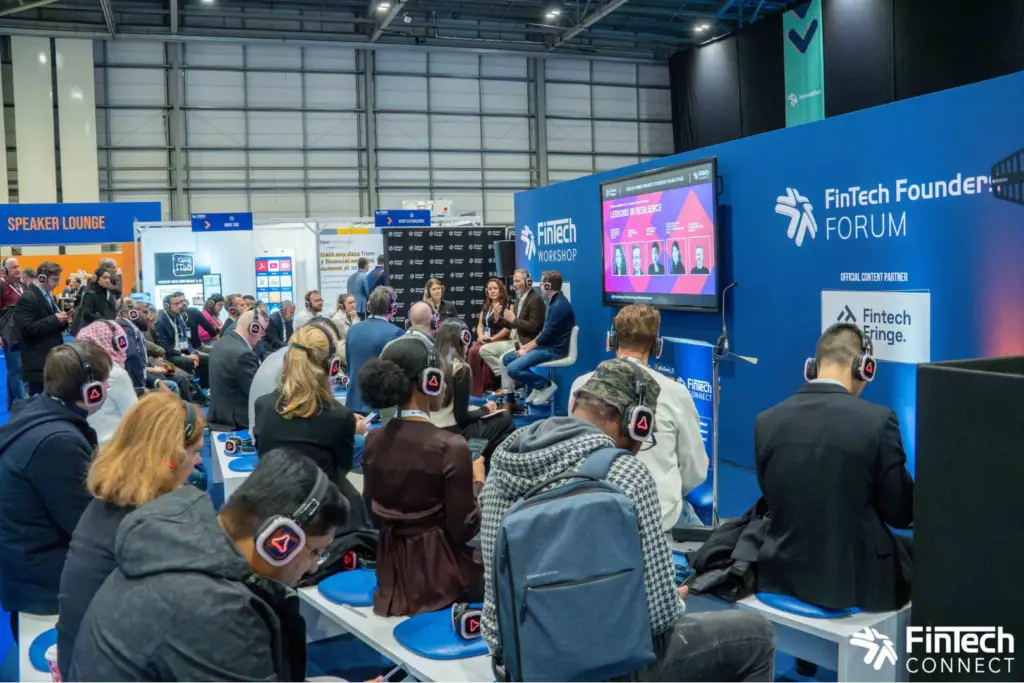Founder success stories are inspiring, but they often gloss over the real grit it takes to succeed. Behind every high point lies a string of challenges—setbacks that test even the most determined entrepreneurs.
At the Founders Forum stage during Fintech Connect, Fintech Fringe went beyond the headlines to explore what it really takes to build resilience.
The discussion featured an accomplished panel of fintech founders: Alexis Rog, founder and CEO of Sikoia; Karen Rudich, CEO and founder of ELEMENTARYb – sherlocB; and Alex Mifsud, CEO and founder of Weavr. Guiding the session was Magdalena Krön, Fintech Advisor and one of the founding team behind Rise, created by Barclays. Together, they shared hard-earned lessons and practical insights on navigating the entrepreneurial roller coaster.
Here’s what we learned about resilience—not as an abstract concept, but as a critical tool for survival and success.
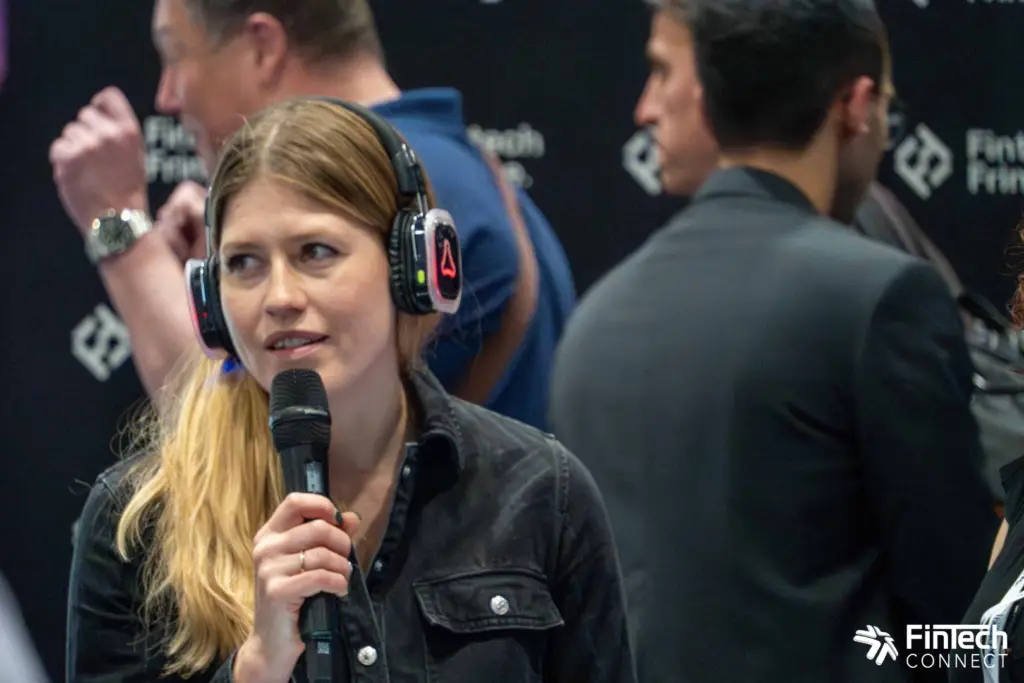
Resilience: A Muscle to Train
Resilience is often romanticised, but Magdalena set the stage by defining it in straightforward terms:
"Resilience is the capacity to withstand or recover quickly from difficulties. It’s a muscle—it needs to be trained."
Magdalena Krön, Fintech Advisor
For Karen Rudich, resilience has been a defining part of her journey as a three-time founder. Reflecting on her experiences, she said:
"You’ve got to be willing to dust yourself off, figure out the lesson, and try again. There are no mistakes in entrepreneurship—only learning opportunities."
Karen Rudich, CEO and founder of ELEMENTARYb - sherlocB
Karen’s words capture the essence of resilience: the ability to view setbacks not as failures, but as stepping stones for growth. She emphasised that while challenges can be daunting, they also bring clarity and direction if approached with the right mindset.
Alex Mifsud explored how resilience is particularly critical in venture-backed startups, where the pressure to scale quickly leaves little room for error.
"In this environment, you’re constantly pushing the boundaries. You’re meant to take risks that test the limits of your team and resources without burning out. That’s where resilience lives—at the edge of optimality."
Alex Mifsud, CEO and founder of Weavr
This balancing act—taking calculated risks while avoiding burnout—is the hallmark of resilient leadership. Alex pointed out that founders need to be comfortable operating in a space of discomfort, learning to thrive in uncertainty without pushing themselves or their teams too far.
For Alexis Rog, resilience is a skill learned through experience. Early setbacks can feel overwhelming, but over time, they become part of the job description.
"Setbacks are just a normal part of the journey. At first, they’re overwhelming, but over time, you realise every founder goes through them. It’s a muscle you build by going through enough challenges."
Alexis Rog, founder and CEO of Sikoia
This perspective offers an important reminder: resilience isn’t innate. It’s something that grows stronger with each obstacle overcome.

The Hardest Hurdle: Product-Market Fit
One of the biggest tests of resilience for any founder is finding product-market fit.
While it’s often described as a milestone, the journey to get there is rarely straightforward.
Alex shared the challenges of aligning a big vision with the realities of the market.
"When you start, you have a great vision. But the reality on the ground rarely aligns with the PowerPoint hockey stick projections. It’s a lonely, stressful process, and the gap between your vision and reality is a big test of resilience."
Alex Mifsud, CEO and founder of Weavr
The process of finding product-market fit is a grind. It involves trial, error, and a willingness to accept uncomfortable truths about what’s working—and what isn’t.
Karen recounted how her team discovered an entirely new market for their product after their initial assumptions didn’t pan out.
"We launched a product for one market, only to discover it wasn’t the right fit. But unexpectedly, another market loved it. Resilience is about being open to such surprises and pivoting quickly."
Karen Rudich, CEO and founder of ELEMENTARYb - sherlocB
This ability to pivot quickly and stay open to unexpected opportunities is what separates resilient founders from those who give up too soon.
Alexis highlighted the importance of letting go of sunk cost fallacies when initial strategies don’t work.
"You need strong opinions, loosely held. Early validation can be misleading, and you must quickly pivot when data contradicts your hypothesis. It’s not just about persistence; it’s about learning pragmatically."
Alexis Rog, founder and CEO of Sikoia
The lesson? Product-market fit isn’t a single moment of discovery. It’s a journey of constant refinement, requiring founders to remain adaptable and focused.
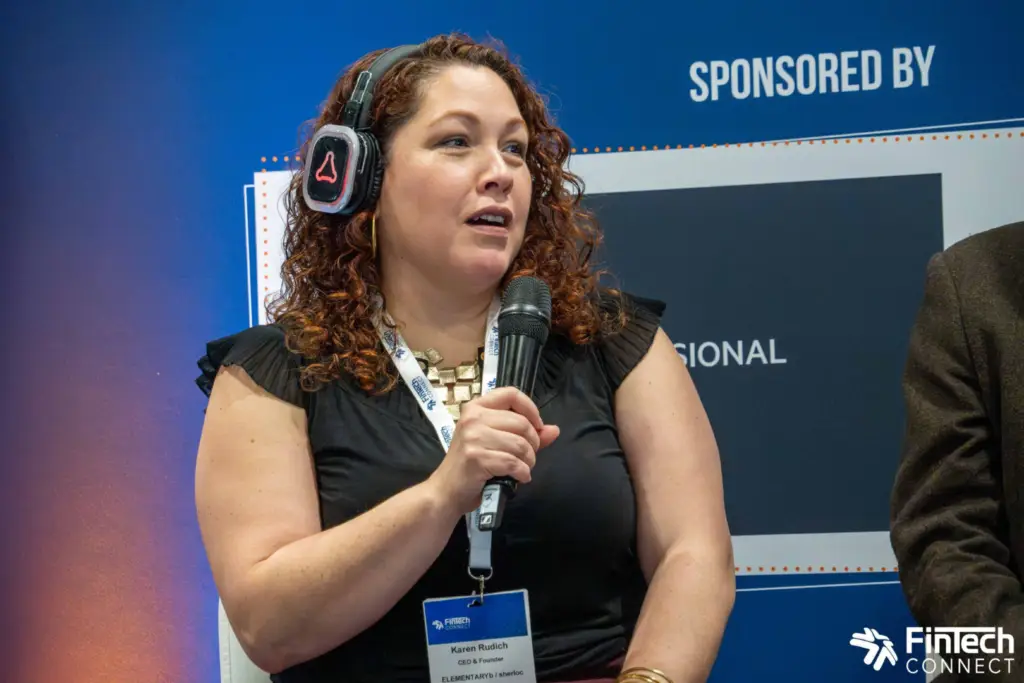
Balancing Transparency with Leadership
As a founder, managing team morale during tough times is a delicate balancing act. How much do you share? And how do you maintain trust while leading through uncertainty?
Karen emphasised the importance of filtering information to avoid overwhelming the team:
"Your team doesn’t need to know every detail—like whether you can make payroll in three months. That’s your board’s role. Your job as a founder is to smooth the bumps for your team while ensuring they stay focused and motivated."
Karen Rudich, Founder, ELEMENTARYb - sherlocB
By contrast, Alex advocated for more openness, suggesting that shielding teams too much can lead to misalignment.
"Every part of the company receives unfiltered signals about what’s working and what isn’t. Shielding the team too much from the challenges can lead to misalignment. As founders, we must process this data and provide context, but over-filtering never ends well."
Alex Mifsud, CEO and founder of Weavr
Ultimately, both approaches underscore the importance of knowing your team and understanding what they need to stay motivated. While some level of transparency builds trust, it’s up to the founder to ensure communication is constructive rather than destabilising.
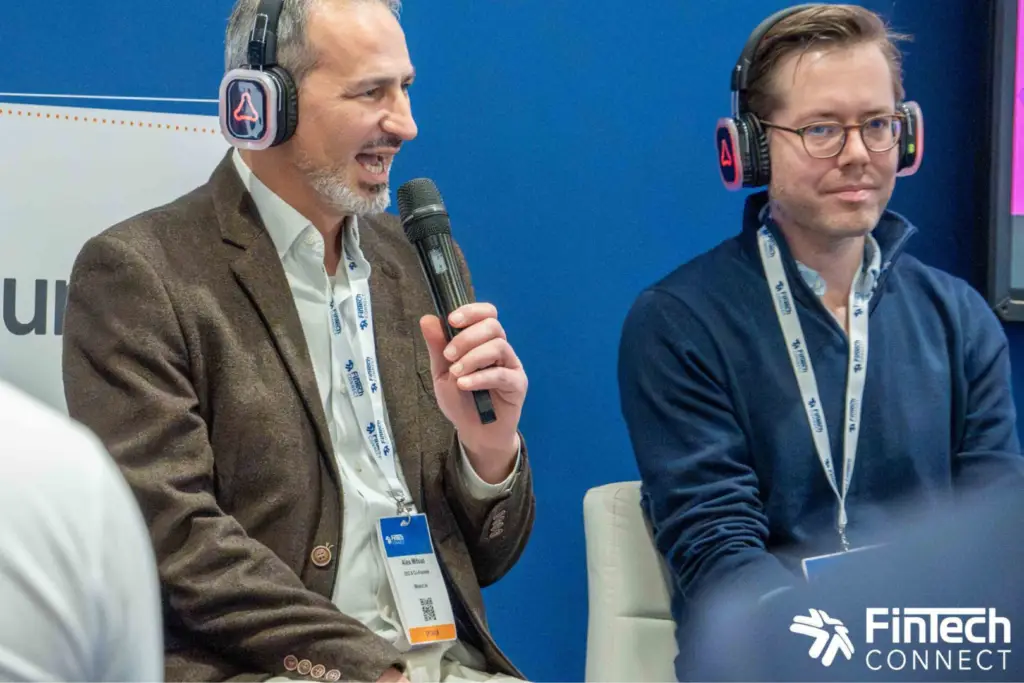
Mental Health: The Foundation of Resilience
The discussion closed with a deeply personal topic: how founders sustain their mental health. Resilience isn’t just about professional endurance—it’s also about personal wellbeing.
Alex described how humility helps him stay grounded in the face of uncontrollable challenges. He recalled the near-collapse of Silicon Valley Bank as a stark reminder of the limits of control.
"You can’t control everything. Some things, like the collapse of Silicon Valley Bank, are beyond your influence. Once you accept that, it’s freeing. You realise success is never owed to you, and from there, you can find calm."
Alex Mifsud, CEO and founder of Weavr
This perspective allows founders to focus on what they can control, avoiding unnecessary stress over external forces.
Karen shared how physical activity has been a lifeline for her mental health:
"I practised Krav Maga religiously before the lockdown. Whether it’s martial arts, golf, or simply walking the dog, find something that gives you space to process and stay balanced."
Karen Rudich, Founder, ELEMENTARYb - sherlocB
For Alexis, the key lies in maintaining perspective and finding fulfilment beyond professional achievements.
"The unhappiest I’ve been is when my self-worth was tied too closely to the natural highs and lows of the company. Having other projects—like sports or family—helps me maintain a healthier balance."
Alexis Rog, founder and CEO of Sikoia
These reflections underline an important truth: resilience isn’t just about bouncing back. It’s about creating a life that supports your ability to persevere.
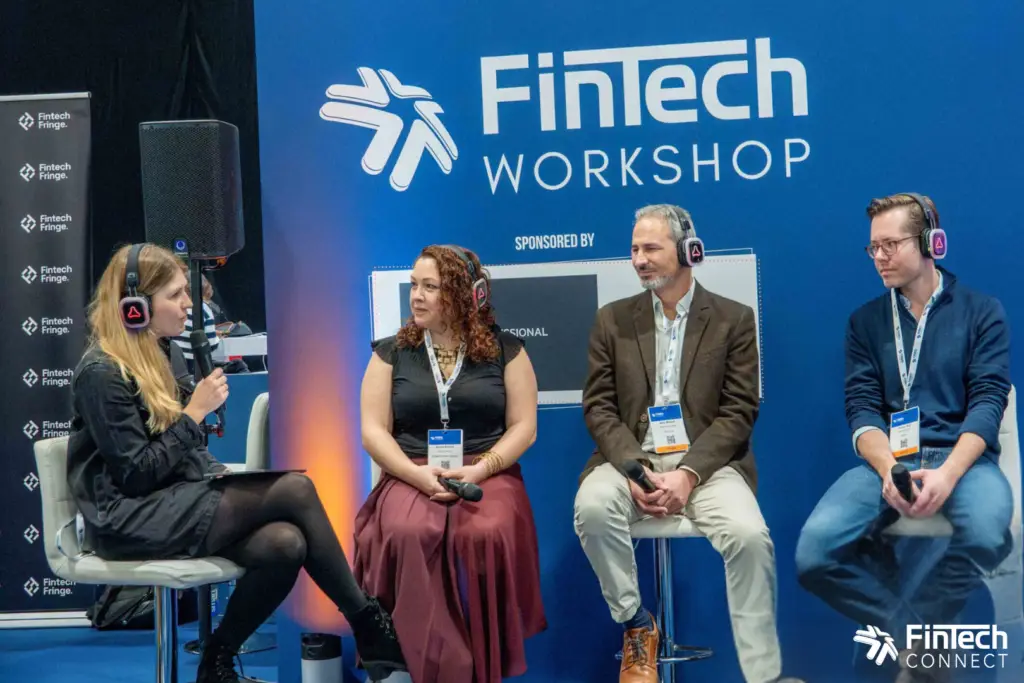
Practical Takeaways for Founders
The session was packed with insights that go beyond inspiration to offer actionable advice for founders:
- Train resilience like a muscle. Embrace setbacks as opportunities to grow stronger.
- Be flexible but focused. Pivot when needed, but stay grounded in your ultimate vision.
- Communicate with care. Strike the right balance between transparency and leadership.
- Prioritise mental health. Build routines and relationships that keep you grounded during tough times.
Resilience is the foundation of entrepreneurial success. By cultivating adaptability, humility, and perspective, founders can turn even the toughest challenges into opportunities for growth.
– ENDS –
What are your strategies for building resilience?
Share your story—We’d love to hear how you’ve navigated the roller coaster of entrepreneurship.

